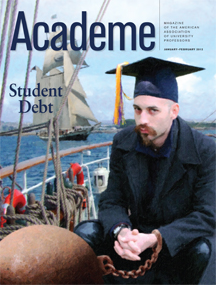Jason DeParle's "For Poor, Leap to College often Ends in a Hard Fall" (NY Times, December 22, 2012) is a compelling piece of journalism on the growing crisis of college debt, especially for poor students with little safety net. Following three girls from Texas who made a pact to go to college and "not end up working at WalMart," the story puts a face to what the Times's statistics show is an increasingly common experience for college students from poor backgrounds. As DeParle argues, the story of the struggle for higher education among the poor is actually the story of "the growing role that education plays in preserving class divisions." As he writes:
Poor students have long trailed affluent peers in school performance, but from grade-school tests to college completion, the gaps are growing. With school success and earning prospects ever more entwined, the consequences carry far: education, a force meant to erode class barriers, appears to be fortifying them.Read the rest online.



























